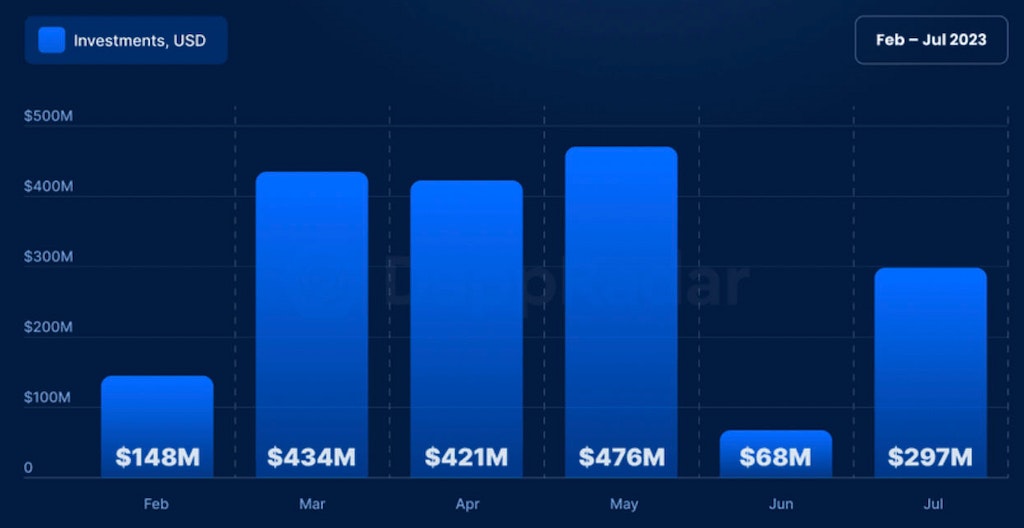Significant growth was observed in game investments in the Web3 field in July. With strategic partnerships and important announcements, the total value of investments rose to $297 million. After a significant decline in investments in game projects due to negative news flow in June, there was a significant increase in investments in the gaming sector in July.
Intense Interest in Game Projects
Funds invested in Web3 games reached their lowest level of the year in June, amounting to $68 million. According to data released by the blockchain data analysis platform DappRadar on Thursday, this was mainly due to challenging market conditions. Lawsuits filed against two major crypto exchange companies, Binance and Coinbase, by the SEC had a shock effect on the market, affecting many Web3 game projects.
According to DappRadar’s report, there are currently approximately 712,611 active wallets used daily in this sector. This figure indicates a small decrease of 0.5% compared to the previous month, but still constitutes 41% of the sector’s activities. It was determined that infrastructure projects received $187 million or 63% of the total allocated funds, most of which were invested in game projects. Additionally, investments in games and metaverse initiatives were announced as $110 million, constituting 37% of the overall financial flow.

New Revenue Model
The WAX blockchain network stood out as the top player in the gaming sector according to Unique Active Wallets (UAW) measurements. With a monthly count of 300,325 active wallets, WAX hosts popular Web3 game Alien Worlds, as well as other games like Wombat Dungeon Master and Taco.
BNB Chain regained second place with a 43% increase, reaching 108,311 unique wallets. This growth was largely attributed to game platforms such as Xterio and Gaimin.
SKALE, which supports games like CryptoBlades, recorded a 64% increase with 18,133 unique wallets. Flow achieved a leap of 105% by reaching 19,621 unique wallets.
Web3 games allow developers to differentiate themselves in a saturated market by offering different game mechanics and immersive experiences. They also provide innovative revenue streams, including the sale of in-game assets and the play-to-earn model.









